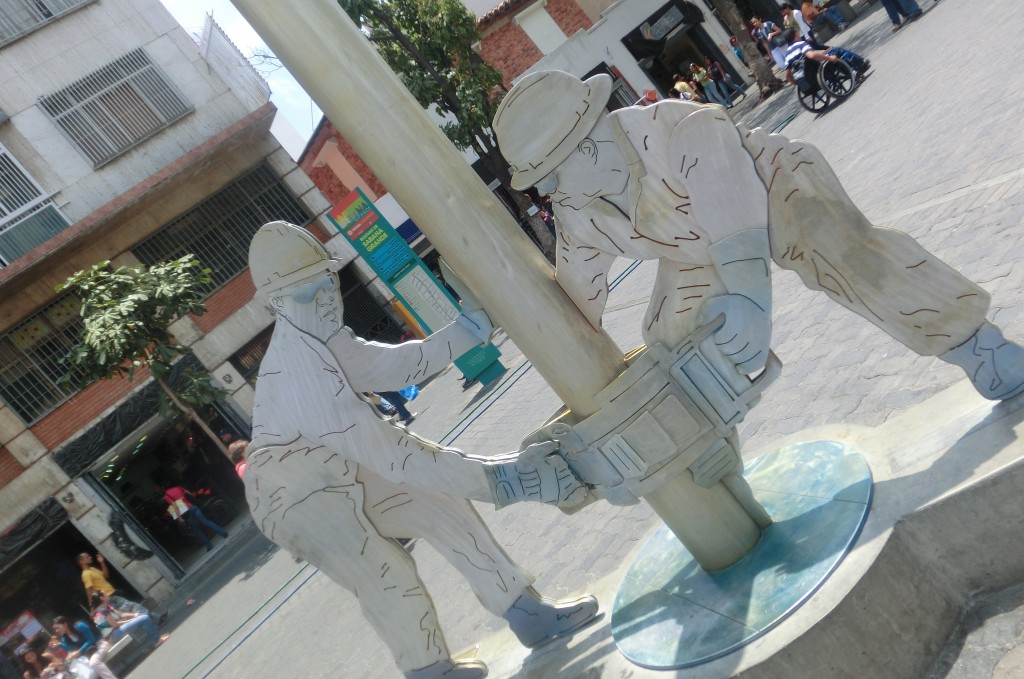I tried to plumb deeper into the role of Petróleos de Venezuela, S.A. (PDVSA) before the election, and I argue in The Atlantic this morning that chavismo really marks more of a continuity with than a rupture from the petrostate clientelism that preceded Hugo Chávez — both in the 40 years of democracy in the late 20th century, as well as the era of military dictatorship that stretches back to the discovery of petroleum in Venezuela and its widespread export starting in 1918:![]()
Chavismo marked a rupture from this system in two ways. First, he diverted a larger share of Venezuela’s oil wealth to the poor than ever before — although the deployment of those funds was never incredibly efficient, nor was it without corruption. Secondly, he flattened the system through his own personality cult. PDVSA, the state oil company, has a stronger brand in Venezuela than the PSUV, the governing United Socialist Party. It was Chávez personally who doled out the gifts
It’s the second part that will make Maduro’s task especially difficult. Chávez would have been a hard act for anyone to follow, but Maduro is a bland apparatchik in contrast whose legitimacy, so long as he remains president, will forever be challenged by his narrow victory . He ran a largely defensive campaign, wrapping himself in Chávez’s legacy. Provided that his victory is upheld, it’s hardly a mandate forchavismo, let alone madurismo, but it’s not at all clear whether chavismo would ever actually work without Chávez, the personal embodiment of the latest iteration of Venezuela’s petro-state clientelism
That’s why, I argue further, Nicolás Maduro will have a very hard time maintaining the system Chávez developed, and why I think Venezuela is headed for more difficult times before it sees better times.
I argue that not only is Venezuela suffering from a sort of ‘Dutch disease’ on steroids, but that the petrostate mentality has skewed the relationship between the government and the governed:
As in oil-rich Middle Eastern countries, resource wealth skews the link between the state and its citizens… and the traditional link between government and voters is turned upside down: instead of an electorate of taxpayers holding its leaders accountable for good government, voters look support politicians who can offer the largest slice of Venezuela’s oil wealth. That’s why domestic subsidies make Venezuelan gasoline prices the world’s cheapest, at just six cents a gallon.
That was true before and during the Chávez era, and it will certainly be true after Chávez. What seemed like a relatively mature democratic system before Chávez was always institutionally weaker than it looked from the outside.
I also caution that the opposition will have to do much more than just win an election in order to break the vicious cycle of Venezuelan (mal)governance:
But if Maduro’s victory is somehow overturned and Capriles becomes Venezuela’s next president, he’ll need a lot more than a change in expectations to put Venezuela on a firmer footing. The opposition’s hopes are based on what Paul Krugman might call the “hada de confiaza” — a Venezuelan confidence fairy.
